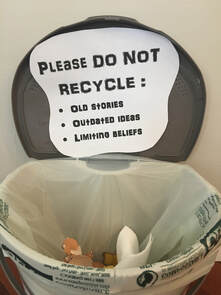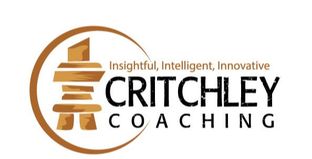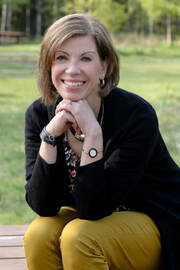
There have been debates about whether residents should be able to choose their own size of black (garbage) bin, with less cost associated with smaller bins. Over the past couple of years we have added blue and green bins, one for paper, one for food waste.
Part of me shakes my head. It’s hard to believe this is even a discussion in 2019. I grew up on a farm and we were reducing, reusing and recycling long before it was sexy.
All our food scraps went into a container that was carried to the barn each morning and shared with the chickens. It was unheard of for us to use tinfoil only once. We washed and dried it, folded it and saved it for next time. We did the same with plastic bags.
Birthday and Christmas gifts were unwrapped carefully and the paper was saved for the following year. My mother took her own containers to the newly opened ‘health food store’, The Horn of Plenty, in Dundas. It may or may not be true that she single-handedly kept it open with her purchases in those early days. However, last summer when I was in Dundas, I did notice that it was still open, in its same location, forty years later.
As a teenager I was often mortified by all of this, even though at the same time it felt very normal to us. I thought others might think we were poor, never realizing that in fact my mother was a very early adopter of environmental consciousness.
Of course, as I’ve grown older, I can appreciate those lessons modeled for us. However, I’m wondering if it isn’t finally time to fully start a rebellion against these now common ideas of reduce, reuse and recycle.
Rest assured, I don’t want to get rid of my compost bin. Or my blue bin. But I have noticed some of the organizations I work with have become carried away with reduce, reuse and recycle. Not the environmental kind. The personal kind.
How often when working with a client do I hear some version of an old, old story. Something like, ‘I’ve tried everything. I’m doing absolutely everything I possibly can.’ Really? Or is this simply a well-used, several times washed piece of tinfoil they have carefully tucked way and have brought out to use yet again? This kind of recycling allows them to stay in their very comfortable, very unappealing situation.
Personally, I can find lots of situations where I have gone overboard with reduce, reuse and recycle. I have reduced or minimized some of my character strengths to allow myself not to look show-offy and at the same time to allow others to look better than they are. I’ve reduced some of my accomplishments to single sentences. I’ve reduced myself to tears, convincing myself I don’t quite have what it takes.
I’ve reused excuses until even I have had to recognize their silliness. When my kids were little and our staff was heading out together after work, I most often declined letting them know I was heading home. One day, when both kids were away at university, this exact same scenario occurred. Exactly as I had always done, I headed home. I was half-way home before it struck me, ‘What in the world am I rushing home for? The house is empty!’ My recycled, reused story, once both useful and truthful, had become nothing more than a comfortable hiding place for me.
Each of us is excellent at reducing, reusing and recycling. Of course, we are. By doing these we keep ourselves as the people we easily recognize. We give ourselves permission to not grow or change. By doing this we also miss out on incredible opportunities.
While I am continuing to embrace the reduce, reuse, recycle efforts of the big city, I’ve decided that for the most part, I’m going to scrap many of them in my real life. When I’m doing things, I’m asking myself to recognize when I am just doing it, or not doing it, because it is easy, familiar and recycled. I’m becoming braver.
I’m trying things I’ve never done. I’m saying yes. When I hear me telling myself a familiar story I pause and question whether it is the truth. Or is it some old reused thinking. Perhaps it is time to quit my recycling and treat myself to some shiny, non-bio-degradable, new ideas and adventures? Perhaps even some of the one-use-only variety.
My inquiry for you this week is, ‘Does this need reducing, reusing, recycling, or …. replacing?’
Elizabeth is a certified, professional Life and Leadership Coach, and the owner of Critchley Coaching. She is also the founder and president of the Canadian charity, RDL Building Hope Society. She works with corporations, non-profits and the public sector, providing leadership and personal coaching for individuals and teams. She creates and facilitates custom workshops for all sizes of groups. Contact Elizabeth and allow her to help you stop recycling!


 RSS Feed
RSS Feed